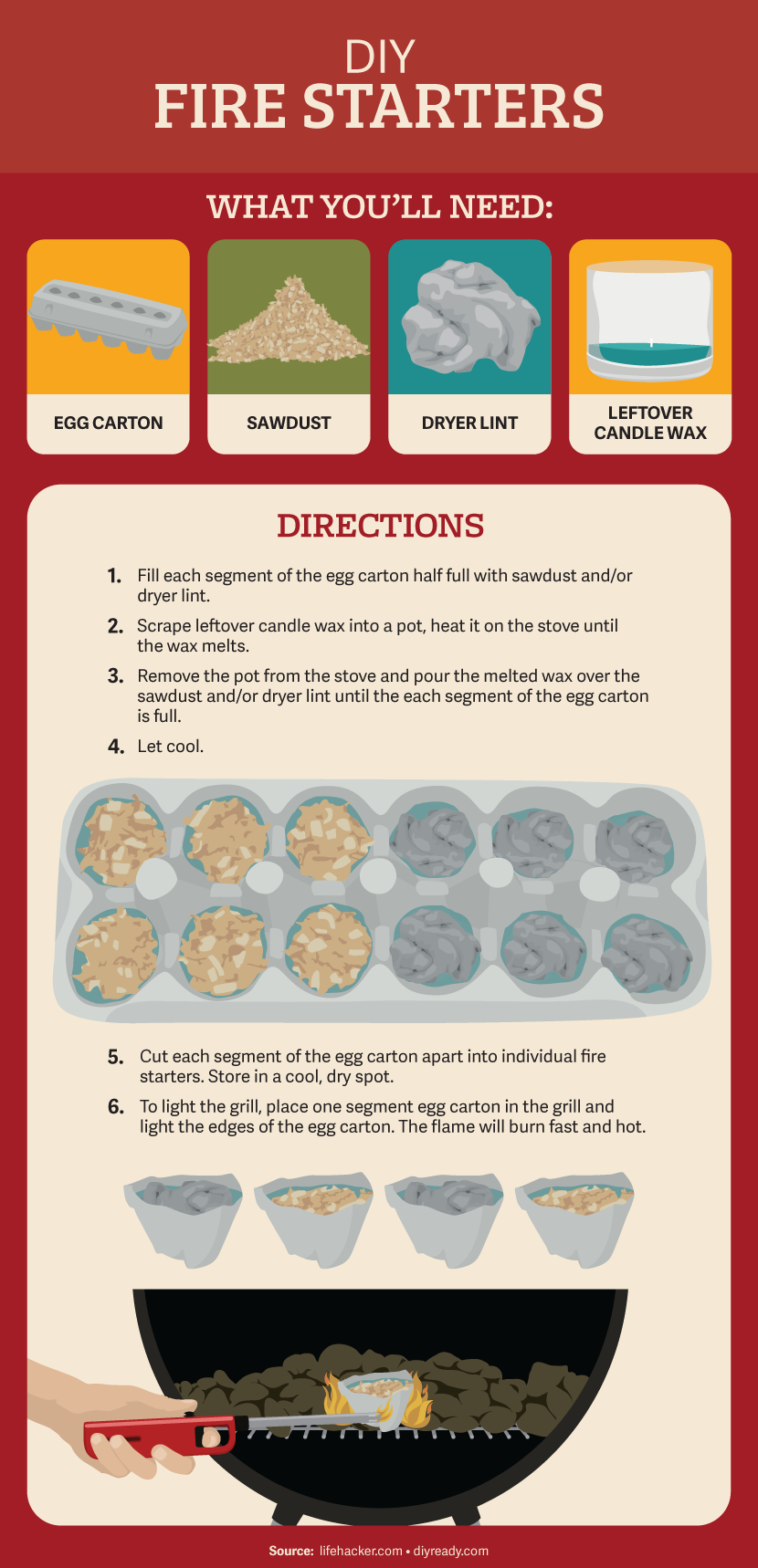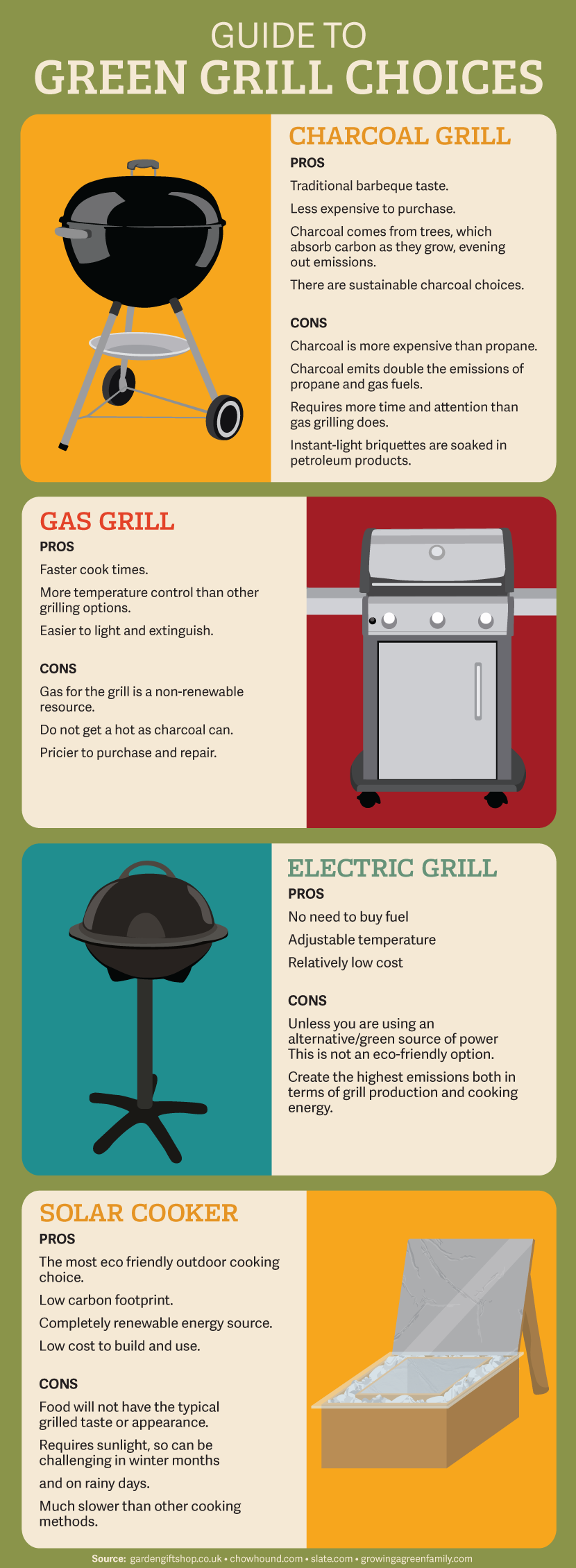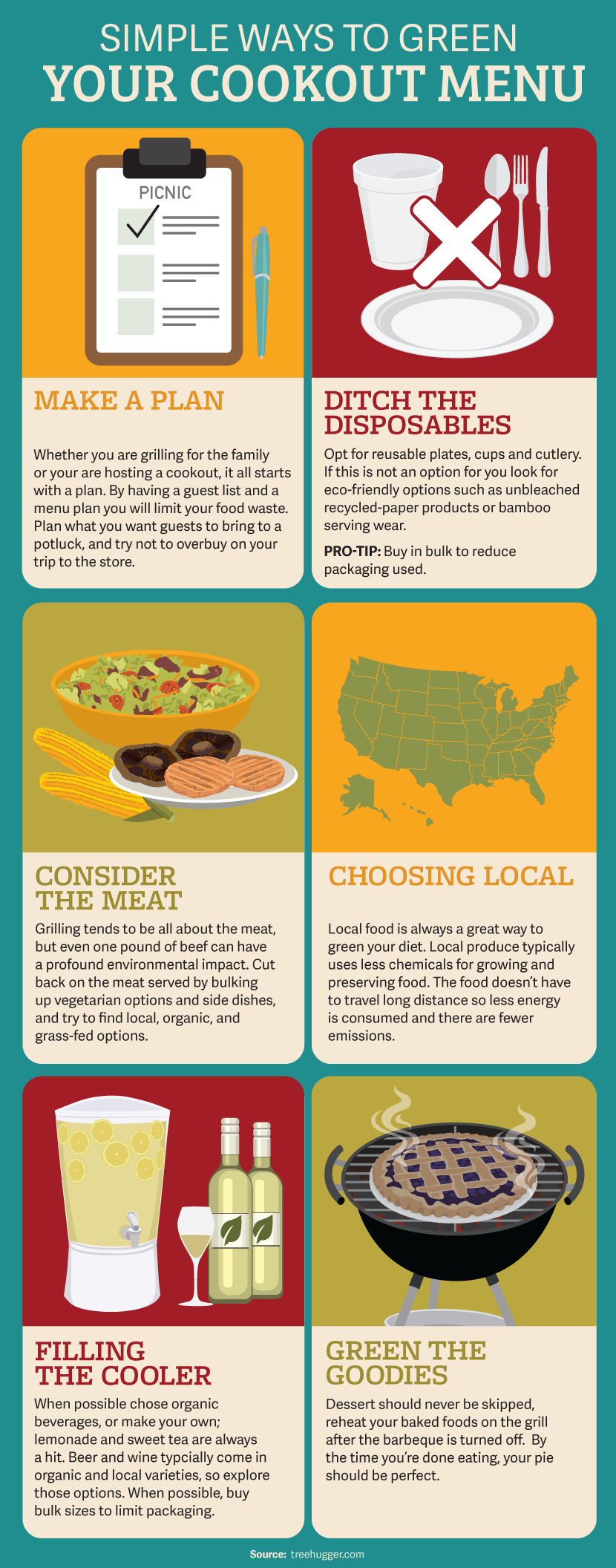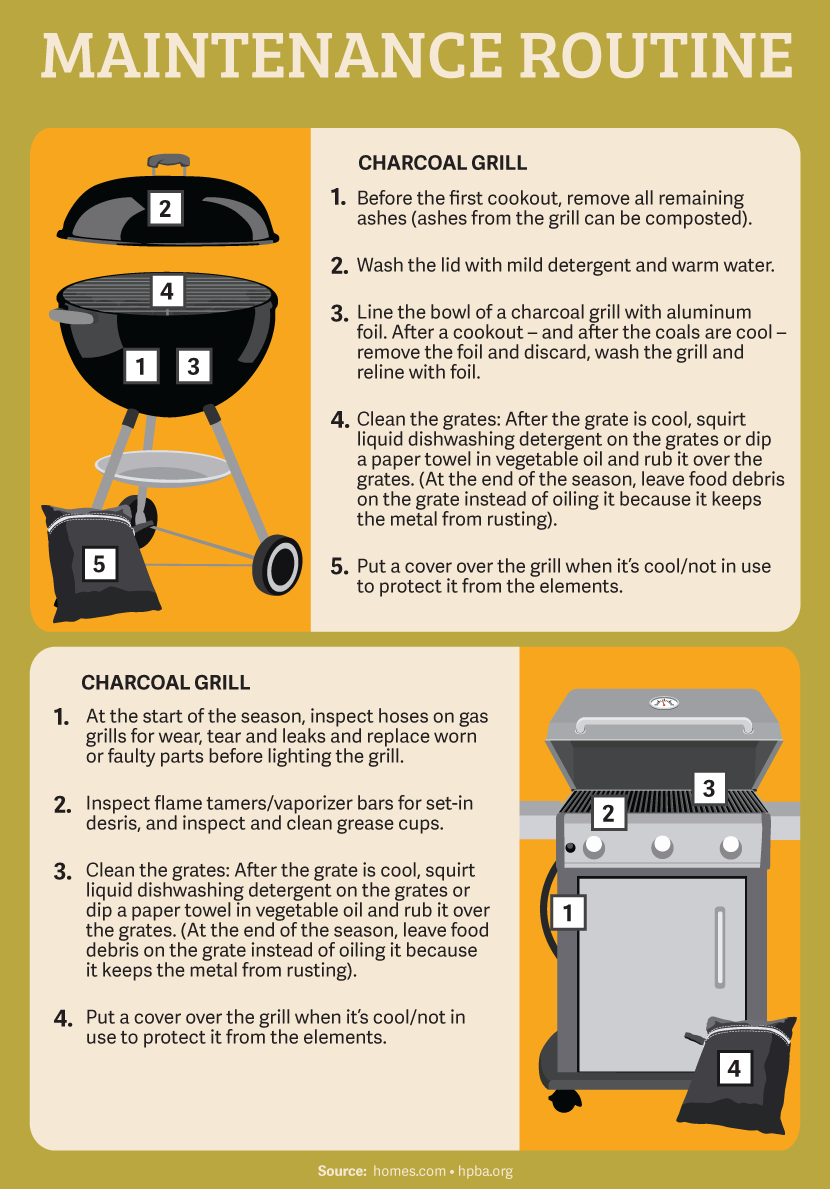Green Grilling: Minimize the Eco Impact of Your Summer Cookouts
Grilling is a popular summer pastime. The Hearth, Patio, and Barbecue Association (HPBA) reports that 75 percent of American households own a grill or smoker. While fresh favorites like red peppers, asparagus, corn on the cob – even peaches – taste better hot off the grill, firing up the barbecue takes a toll on the environment.
According to the Sierra Club, the 60 million barbecues that take place on the Fourth of July each year release 225,000 metric tons of carbon dioxide, burn the equivalent of 2,300 acres of forest, and use enough charcoal, lighter fuel, and gas to power 20,000 households for one year – and that’s just from a single day of grilling!
You don’t have to start boiling corn or frying hamburger patties to protect the planet. Follow these tips to make your summer barbecue more eco-friendly.

Rethink your grill: If you’re among the 37 percent of Americans the HPBA expects to purchase a new grill this season, opt for gas or electric models.
Compared with charcoal, grills powered by gas or electricity burn cleaner, minimizing their environmental impact. The HPBA reports that 62 percent of households own a gas grill and 12 percent own electric models. According to some estimates, propane-powered grills produce three times less greenhouse gas than charcoal grills.
The eco-friendliest option is a solar cooker. Relying on sunlight to cook your hot dogs and corn on the cob takes longer, but unlike gas, electric, or charcoal grills, solar cookers do not require any non-renewable resources for power.
Change your charcoal: More than half of all Americans own charcoal grills, according to the HPBA – but the smoky flavor comes at a cost.
Charcoal briquettes often contain coal dust or other chemical additives that are used as binders. The good news is that it’s possible to find briquettes made from invasive trees, such as fast-growing species like bamboo or wood harvested from sustainably managed forests. As a guarantee of green claims, look for brands the Rainforest Alliance has certified. These eco-friendly alternatives to traditional charcoal produce the same char-grilled flavors without the airborne toxins.
When lighting briquettes, skip the petroleum-based lighter fluids, which contain volatile organic compounds (VOCs) that contribute to greenhouse gas emissions. Instead, fire up the BBQ with chimney charcoal starters or DIY fire starters, which are chemical free.

Eat local: Don’t forget that the food on the grill also has an environmental impact.
Shop at a farmers’ market for local, organic produce. Produce grown on local farms without added pesticides and hormones has a much smaller carbon footprint than chemical-laden foods shipped from across the nation (or the other side of the world).
In addition to traveling fewer miles, fresh produce is in peak season in the summer so there’s no excuse to grill frozen or overripe foods. In the cooler months, look for organic produce at the supermarket.
While barbecuing is synonymous with meat, choosing veggie burgers over beef patties and tofu dogs over hot dogs is an important part of grilling green.
Livestock emits methane, accounting for almost 20 percent of total greenhouse gases, according to a UN report. If meat is a must, opt for organic, grass-fed beef or choose chicken and fish, which have smaller carbon footprints than beef or pork.
Don’t forget to select green beverage choices, too. Choose organic juice, beer, and wine. To serve a crowd, buy in bulk. A keg from the local brewery is better for the planet than purchasing several cases with individual bottles.

Douse the flames: If you’re cooking with charcoal or other briquettes, don’t let the coals continue to burn after the last veggie burger has been taken off of the grill. The fire will reduce the coals to ashes, leaving no reusable charcoal for the next time you grill. Instead, close the grill and shutter the vent as soon as you’re done cooking, and you’ll have leftover charcoals for the next cookout.
Compost leftovers: You’re bound to have leftovers after grilling out. Think twice before tossing a half-eaten cob of corn, chopped onions, or kitchen scraps like cornhusks and eggshells in the trash.
In the United States, up to 40 percent of all food produced is wasted (the equivalent of 20 pounds of food per person per month). When it’s sent to the landfill, food waste is a potent source of methane emissions.
Most leftovers from a cookout can be added to the compost pile. There are even compostable dinnerware options, which means your leftovers, plates, cups, and cutlery can be added to the compost bin to decompose.

Clean green: Proper cleaning and maintenance will prolong the life of a grill, ensuring that it’s the centerpiece of a cookout and not a scrap in the landfill.
Scrape the grill while it’s still hot to remove most of the grime from burgers, hot dogs, and veggie skewers. To make it sparkle, look for nontoxic, biodegradable grill cleaners instead of petroleum-based products. You can also scour the grill with a DIY cleaner made from baking soda and water.
Armed with these environmental tips, you can ensure you enjoy the best outdoor cooking this summer has to offer whilst vigilantly reducing the eco impact your barbecue imparts. Happy grilling!
Embed the article on your site

